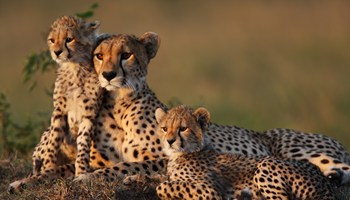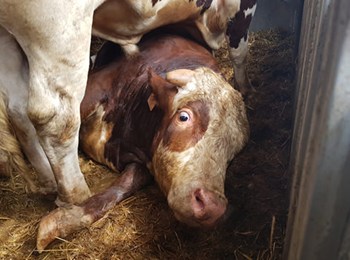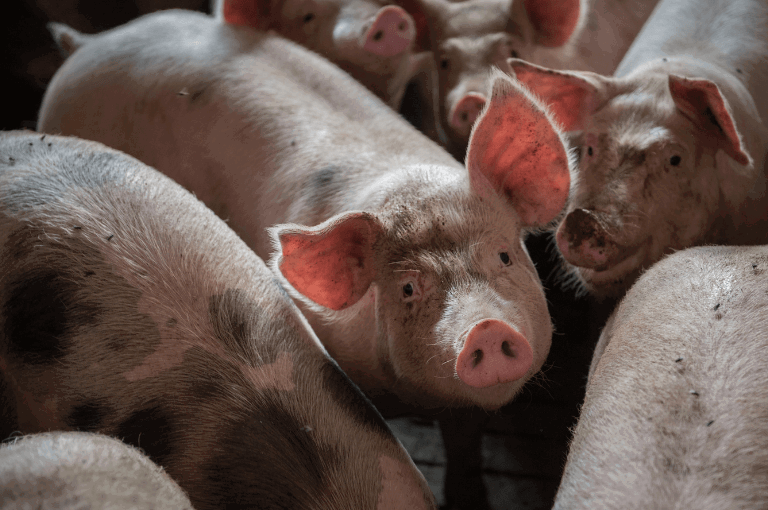Written by Philip Lymbery
Today, 3rd March 2021, is United Nations World Wildlife Day: a hugely special day to celebrate the wonder of the world’s wild animals and plants. In this age of pandemic, climate and biodiversity emergency, it has never been more important to raise awareness of the role these play in the life support systems of our shared planet.

Earlier this month, a new Chatham House report, Food System Impacts on Biodiversity Loss, was launched in partnership with Compassion in World Farming and The United Nations Environment Programme (UNEP) during a live webinar. It identified that our global food system is the biggest driver of destruction of the natural world with agriculture being the main threat to 86% of the 28,000 species known to be at risk of extinction.
The report gained extensive media coverage and traction around the world, helping to raise awareness of our environment’s dire circumstances and the changes we must all make to our lives to avoid further acceleration of the loss of nature that puts life on Earth at risk.

Importantly, the report focused on three actions that can combat the looming threats of biodiversity loss and climate change:
Global dietary patterns need to move towards more plant-heavy diets. This shift, along with the reduction of global food waste, would reduce demand and the pressure on the environment and land.
- More land needs to be protected and set aside for nature. The greatest gains for biodiversity will occur when we preserve or restore whole ecosystems. Therefore, we need to avoid converting land for agriculture. Human dietary shifts are essential to preserve existing native ecosystems and restore those that have been removed or degraded.
- We need to farm in a more nature-friendly, biodiversity-supporting way, limiting the use of inputs and replacing monoculture with polyculture farming practices. Dietary change is necessary to enable land to be returned to nature, and to allow widespread adoption of nature-friendly farming without increasing the pressure to convert natural land to agriculture.
Every day, somewhere in the world, there is new confirmation of how destructive, inefficient, wasteful, cruel and unhealthy the industrial agriculture machine is. Rest assured that Compassion in World Farming will continue to lead the charge for a total rethink of our food system and an end to factory farming.

But whilst change is urgently needed, time is running out!
Which is why we need to seize the opportunity of this year’s UN Food Systems Summit to move toward a global agreement to end factory farming. To reset our food system. To regenerative, restorative farming, working with nature, not against her.
To that end, I am deeply proud and honoured to have been appointed a ‘Champion’ of the Food Systems Champions Network and that I will represent animal welfare organisations in Europe and beyond, as a Food Systems Champion for the 2021 UN Food Systems Summit.
It has never been so important for humanity, for animals and for all life on Earth to manage our food systems in a genuinely sustainable way and I assure you of my passion and resolve to further the aims of the Summit, now and in the future, as we all seek to achieve the Sustainable Development Goals by 2030.
In closing, may I urge you on World Wildlife Day, to come together and make a pledge for all life on Earth. A simple pledge made through our food choices and that will make a world of difference; by choosing to eat more plants and less meat and dairy; making sure any animal products we do eat comes from non-factory farmed sources like pasture-fed, organic and free-range. In so doing, you will be making a significant difference – for all animals and for all life.
Thank you.
Please join our call to the world’s most influential organizations, including The World Bank, the United Nations, and the World Health Organization, to replace factory farming with a food system that respects animals, nurtures our planet and reduces the risk of pandemics.
Please use this link to sign our petition and join the call for a future without factory farming (www.ciwf.org.uk/pandemic).
